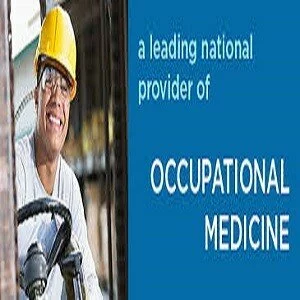The Usefulness of Occupational Medicine in your Work place
Occupational Medicine is that aspect of medicine that deals with the prevention of diseases and promotion of wellness among workers. It is a specialty in medicine sometimes grouped under Public Heath. Simply put, Occupational Medicine deals with the Health and safety of workers in the work place. Sub-specialties of Occupational medicine include Toxicology, Epidemiology, Ergonomics etc.
Occupational medicine can also be defined as that aspect of Clinical Medicine that is vast in the occupational health of workers.
Occupational health is the promotion and maintenance of the highest degree of physical, mental and social wellbeing of workers in all occupations by preventing departures from health, controlling risks and also the adaptation of work to people and people to their jobs. This definition is by the World Health Organization (WHO).
While Occupational Medicine field has only Healthcare professionals as operators, the Occupational Health field is peopled by Healthcare professionals (Occupational Medicine physicians, Occupational Health nurse, Trained Nurses, Physician’s Assistants, Emergency Medical Assistants) and Non-Healthcare professionals(Industrial Hygienists, Industrial Engineers, Safe professionals etc).
Both fields are concerned with the health of workers but Occupational Medicine appears wider than Occupational health because it extends to the treatment of illnesses and injuries associated with the work place apart from prevention of illness and promotion of wellness whereas Occupational Health is concerned with just prevention of illness and promotion of wellness in the workplace
Everyone between the ages of 18 and 65 years is a worker employed in the formal or informal sectors of the economy; whatever work one does has health implications. Diseases associated with work include cancers, accidents, muscles/bone diseases, lung diseases, stress, hypertension, communicable diseases and many others.
Every Thursday from now we shall attempt to discuss illnesses associated with each type of work.
To begin with, let us list the functions of an Occupational Medicine (Health) Team;
1. Potential Employee Evaluation
All new employees must under a comprehensive medical examination before receiving an employment letter. It is meant to establish the health status of the potential employee and to match his status with the job to be done. Pregnant women, for example, are not employed, those with disability can only be employed in suitable locations. Those with sight problems cannot be employed as drivers and those on certain medications that can cause drowsiness cannot be employed to operate machines.
2. Re-evaluation of employees
After an accident or illness, an employee must be re-evaluated to establish whether he can go back to his old job or not. If found unsuitable for any job within the Establishment , he is paid his compensation and relieved of his position. In a big concern, he can be re-trained for other jobs.
3. Diagnosis and treatment of occupational diseases
A medical clinic is normally run for workers either on Retainership basis with clinics outside or established within the company. However the situation in some countries including Nigeria, The United States of America and Germany , the workers key into the National Health insurance Scheme.
Illnesses are diagnosed and treated by doctors and nurses within the company premises, where necessary, referrals are made to specialists outside; such cases are followed up to ensure proper treatment.
4. Rehabilitation of employees
Some employees after an illness or accident require rehabilitation, this could be by the Occupational therapist, Physiotherapist, or Psychotherapist. The purpose is to retrain the worker to go back to work; some require both physical and mental training while other just require physical training especially those with physical injuries
5. Health education
Health education here means creating awareness on safety and health. Safety drills, Emergency response drills are held regularly within the premises such as for fire outbreak, medical emergency etc. Health education also creates awareness about communicable and non-communicable diseases such as HIV/AIDS, Hypertension, Diabetes, Ebola Virus infection and so on.
6. Enforcement of Government regulations /laws in workplace
It is the responsibility of the Occupational Health Team to enforce the Government laws and regulations on Safety and Health within the work place
7. Setting /operating company Occupational Healthcare Service
It is the responsibility of the Occupational Health Team to set up an Occupational Healthcare Service in the company. Such service will cover the following:
a.Identify and assess the risks from health hazards in the workplace and surveillance of potential hazards.
b.Advising on planning, organization and design of work stations, appliances, machines, equipment and substances to be used in the company.
c.Advising on training of some employees on occupational health and safety, hygiene and ergonomics.
d.Surveillance for workers health
e.Setting up and operation of medical clinic within the premises and identification of medical specialists for possible referrals. Organising first aid points and emergency treatment if there is no in-house clinic.




Perfect piece of work you have done, this site is really cool with excellent information.